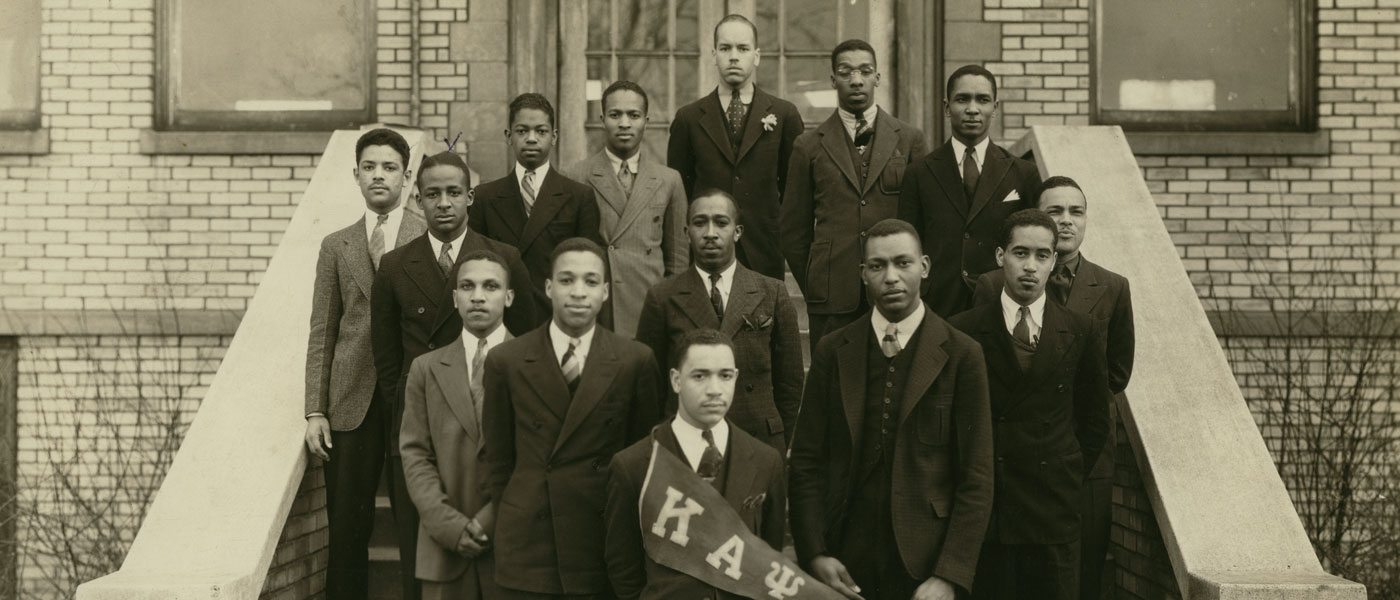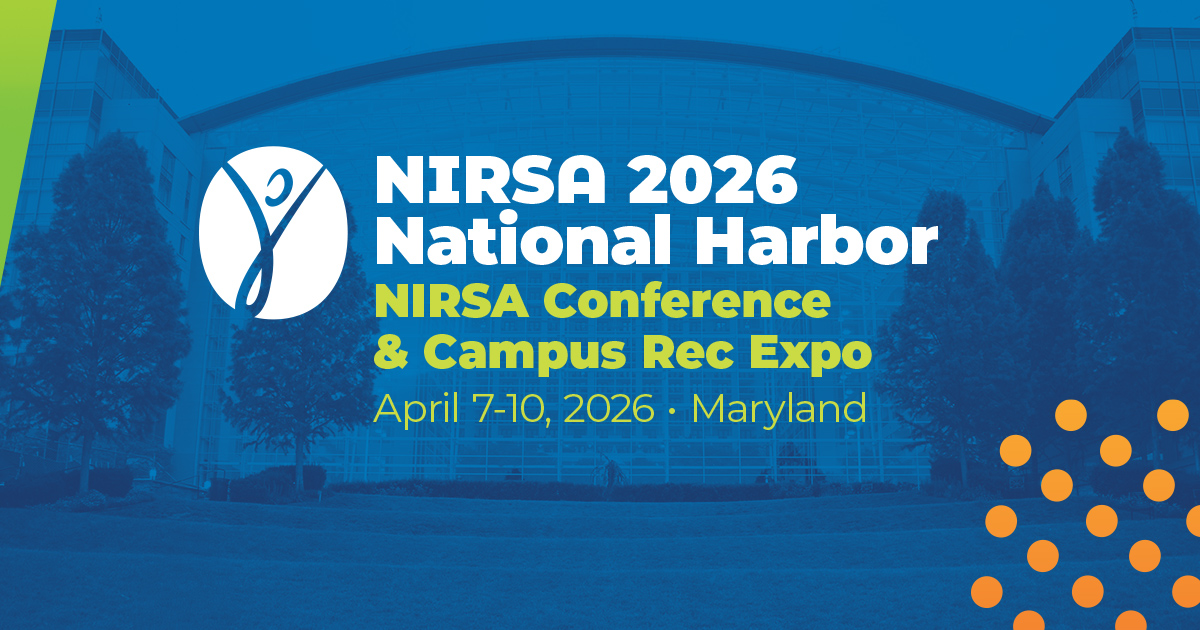It’s hard to believe that the 2017 NIRSA Annual Conference & Campus Rec and Wellness Expo is in just a few short weeks. That familiar buzz of excitement and anticipation is already palpable throughout the NIRSA community as we prepare to network and reconnect with over 2,500 NIRSA family members who will come together from across North America. It’s poignant to think how this all began with 22 male and female intramural directors from 11 Historically Black Colleges and Universities coming together over two days in February of 1950.
We make a better world by becoming better ourselves
As we head towards the capital of the United States for our much anticipated Annual Conference, it is important to remember the broader context in which the event takes place. While deeply held and passionate beliefs have the power to drive great change and innovation, they can manifest in negative dispositions and actions as well. This is evidenced as our communities continue to witness acts of violence against innocent people throughout the world, most recently at a mosque in Quebec.
Our work as educators, rooted in our values and using the unique platform of campus recreation, has never been more important. In times of division, when rhetoric can be angry and hostile and many in our communities are feeling undervalued and unsafe, we must utilize the strength of NIRSA and its long tradition of connection, problem solving, respect, and inclusion.
We must work even harder to make our facilities and programming open and welcoming to all of the students we serve. We have a duty to hear the voice, experience, and concerns of each student—and to help them learn how to listen and dialogue with each other.
This duty is significant and no single individual has all of the answers. NIRSA has always been the place to connect and problem solve with trusted colleagues, learn about trends and opportunities, and anticipate what will impact us next—all in service to and development of our students.
Finding strength in our roots
Appropriately, the theme of that first gathering at Dillard University was “Maximum Participation;” our founders—including William Wasson, pictured above with his fraternity in 1935—sought to reach professionals and students from all types of institutions and all walks of life. For over 67 years now NIRSA has built itself on principles of inclusion, which are articulated in our history, mission and vision, strategic plan, and values.
It feels particularly appropriate to recall and reflect on that history, growth, and message of inclusion during this inarguably tumultuous time—just as the NIRSA Board of Directors did this past summer in its statement reaffirming the Association’s active commitment to its value of equity, diversity, and inclusion. The polarization has continued well past the U.S. elections and continues to play out on social media, in the streets, and often times on our campuses. This is why it is important we work diligently to create spaces and programs that encourage civil discourse and respect for the wide array of participants, perspective, and viewpoints we serve.
Indeed, throughout its rich history, NIRSA has always been at its best when leading with these values in mind. We haven’t always been perfect in our pursuit, but the progress made through the vehicle of campus recreation—within the Association and on our member campuses—is a point of pride. This year, more than ever, we are looking forward to that mentoring, fellowship, and collaboration that comes from the powerful network of NIRSA. As we come together, on the anniversary of our founding meeting, may we be particularly mindful of the “Maximum Participation” theme upon which our Association began.
Unique development opportunities at NIRSA 2017
With this in mind, we encourage you to take advantage of all NIRSA 2017 has to offer, including new resources that will be shared at the event and disseminated more widely afterwards. The NIRSA Assembly has been actively thinking about principles of civil discourse, as well as the opportunities—and necessity—of facilitating this within campus recreation. The Assembly will host a panel discussion about how to lead difficult conversations and educate your staff around civil discourse on Wednesday, February 22 from 2:15pm-3:15pm.
Similarly, if you’re looking for campus recreation specific resources for talking with your staff about equity, diversity, and inclusion (or furthering your own personal learnings about social justice), the Equity, Diversity, and Inclusion (EDI) Roundtable is on Wednesday from 8:00am-9:00 am. The EDI Commission will share the first drafts of resources they’re building based on their work at the recent EDI Summit.
An additional sample of the many pertinent and timely sessions you could consider attending is listed below; however, please check out the NIRSA 2017 program for a full listing of the conference’s offerings and opportunities to spark new ideas and further dialogue.
Wednesday
- Creating a Culture of Health and Well-being general session panel
- Race, Identity, and Recreation: Examining the Importance of Recreational Sport in the Lives of African American Students at Predominantly White Institutions
- Fostering a Welcoming Culture: Strategies for Recreation Departments Starting Their Journeys towards Inclusion
Thursday
Friday
- Supporting Student Mental Health in Collegiate Recreation Communities
- The Role of Recreational Sports in Student Academic Success and Overall Well-Being: Preliminary Update
NIRSA is a vehicle for problem solving and support
Of course, whether you will be at NIRSA 2017 or not, the Association welcomes you to share your perspective. And, if you do attend, we hope you’ll continue the conversation long after this conference concludes. Such opportunity goes hand-in-hand with membership in an internationally-reaching association. As our U.S.-based conference attendees grapple with the challenges in U.S. politics, we have the opportunity to turn to our Canadian NIRSA colleagues for fresh perspectives and insights.
Furthermore, the Association is the cardinal vehicle for problem solving, support, and thought-leadership as members navigate the new, and often unprecedented, challenges of the current political climate for themselves, their departments, and their students.
As our Association continues to push forward in its pursuit of building healthy people and communities worldwide, we hope you’ll continue to reach out through our social media channels, such as Facebook and Twitter, where we will continue to share timely resources. Engage with a trusted colleague, mentor, or mentee in the NIRSA Connect communities or by simply picking up the phone and making a call. And know that you can always reach out with questions or concerns to any member of NIRSA’s leadership groups, including the NIRSA Board of Directors.
- For more information, contact NIRSA Director of Advocacy & Strategic Partnerships, Erin O’Sullivan.
Stacey Hall, Ph.D., is currently NIRSA President and Director of Campus Recreation at the University of New Hampshire. Pam Watts is NIRSA Executive Director.








